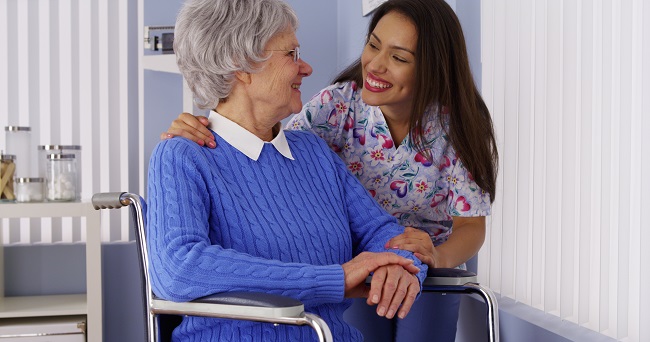How to Improve Dementia Care for Both Patients and Caregivers
Sometimes in life, what feels like a problem can actually be an opportunity. When it comes to dementia care, this couldn’t be truer. Home caregivers sometimes fall into a can’t-do rather than a can-do mindset, especially when it comes to new or worsening symptoms in patients. Potential problems can make a social outing feel like more of an obstacle than it is worth and daily task easier for the caregiver to do than the person with dementia.This way of thinking can be harmful to both dementia patients and those who care for them. Not only do daily routine and social activities improve dementia symptoms, patients who stay active and independent also keep caregivers from taking on too much and burning themselves out. Here are some simple tips to improve dementia care for both patients and caregivers that will keep the quality of care and health of dementia patients strong for years to come.

Modifying Activities:
Modifying regular activities, rather than avoiding them can benefit everyone, and offer opportunities for improving the health and well-being of persons with dementia. Here are some easy tips for modifying activities, rather than doing the task for someone, and ways for patients to stay involved in social activities with new limitations rather than avoid them altogether.
- Getting Dressed: Provide dementia patients with button-free clothing, lace-less shoes, and contrasting colors. This helps them differentiate between items- white socks, dark shoes, light shirt, dark pants, and avoids difficult tasks using their hands- buttons, zippers, laces. Making a task easier, rather than doing it for them, can give the person with dementia a sense of accomplishment, and keep caregivers from feeling overburdened.
- Household Chores: Simplify and streamline ordinary household tasks. Instead of doing all the laundry, let dementia patients fold the laundry and when able, help put it away. At regular mealtimes, make setting the table their task. On cleaning day, have them dust the furniture, or gather newspapers for the recycle bin. Make sure to keep things in the same places and easy to find. Think of what they CAN do, rather than what they CAN’T do with simple reminders and clear instructions.
Social Outings:
Social interactions and being outdoors are great therapy for both patient and caregiver. It slows the progression of dementia and improves the quality of life for dementia sufferers while keeping caregivers from feeling trapped at home. Here are some tips for modifying activities in ways that are still enjoyable and will keep seniors with dementia active and engaged in life:
- Nature Lovers: If someone used to enjoy hiking or long walks in nature, try an outing to a local botanical garden or a bird sanctuary with easier and shorter paths to negotiate. Spend the afternoon with them in a local park or arrange a picnic by a lake with friends for a birthday or special occasion.
- Sports Fans: If someone enjoys watching or playing sports, take them on an outing to play shuffleboard or miniature-golf or invite their friends over once a week to watch a game together on TV.
- Music Lovers: Encourage music lovers to participate in sing-alongs at community centers or with other residents in their care facility or home. If they play piano or another instrument, encourage them to share their gifts with others regularly.
- Gardening: If someone used to be an avid gardener, give them an area in the yard to garden. Go with them to pick out the seeds they will need and help with gardening plans, or let them teach you what they know about plants and tending to a garden.
These are just a few ways to participate in activities once enjoyed in a modified way that keep the lives of people with dementia and their caregivers happy and healthy for a long time to come.
To talk more about this, or anything else, please Contact Us. Thanks.
